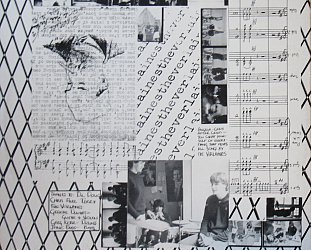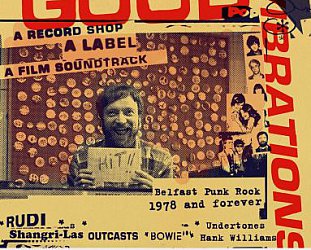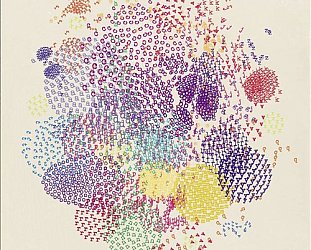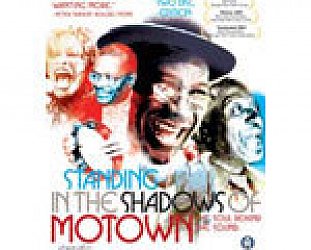Graham Reid | | 1 min read
The Verlaines: Tomorrow Without You

The problem with writing songs which have a political intention or address social issues is that these complex matters cannot easily be reduced to lyrics, and so you end up with songs which are slogans (Power to the People) or full of posturing pomposity (the court calls U2). It's in the nature of a three or four minute song that everything comes off as headlines but no story.
Graeme Downes of the Verlaines is a serious guy and on this exceptional album (which doesn't give up its gifts on a cursory hearing) he not only treads adeptly through politics and weighty matters but equally weaves the personal throughout.
His observations are astute: In Rootless Cosmopolitan about European migration he sings "wind blown to a strange shore that we all thought needed improving, so we brought things like birds to sing, something familiar, some consolation". And on Paraphrasing Hitler he actually manages to convincingly sing the following, "In paraphrasing Hitler I hear more recent voices saying all we hold dear could go down the toilet unless sacrifice prevents it".
On paper that looks alarmingly clumsy (as does "the free market's the freedom to set your own wage, and you don't mind impoverishing us in old age") but it is the compelling music and arrangements (and supporting cast, notably Stephen Small and Tom McGrath on pianos) which drive this along and actually seduces you in on a first hearing.
Here is jaunty but melancholy European cabaret with mandolin and banjo (Paratai Drive), disturbing melodramatic rock with stabbing horns (Paraphrasing Hitler), Randy Newman-like piano songs (The Way I Love You, Socrates for a Day), raging post-punk guitar from David Harrison in the searing attack on consumerism (Wanting), Mariachi-style trumpets on Oh Yeah All Right, and on the standout Tomorrow Without You a kind of alt.country balladry with John Egenes on pedal steel.
And alongside the songs which pull back the plaster and poke at society's scabs are songs of great emotional depth: Forever and a Day is a concise distillation of a relationship which has slowly withered into emptiness. It could equally well work on the pages of a poetry collection.
In a promo sheet about this album Downes says he still believes in the album format as it offers "a cumulative emotional effect" which no compilation or iPod collection can achieve.
On the strength of this emotionally free-wheeling, lyrically dense and pin-pricking, and musically diverse selection you'd have to say the album is in a very safe pair of hands.
As he also notes, nothing here could provide interludes on Fox News or be used to advertise motor sport.
He might have added "no ring tone" either, a mark of quality in my book.







post a comment